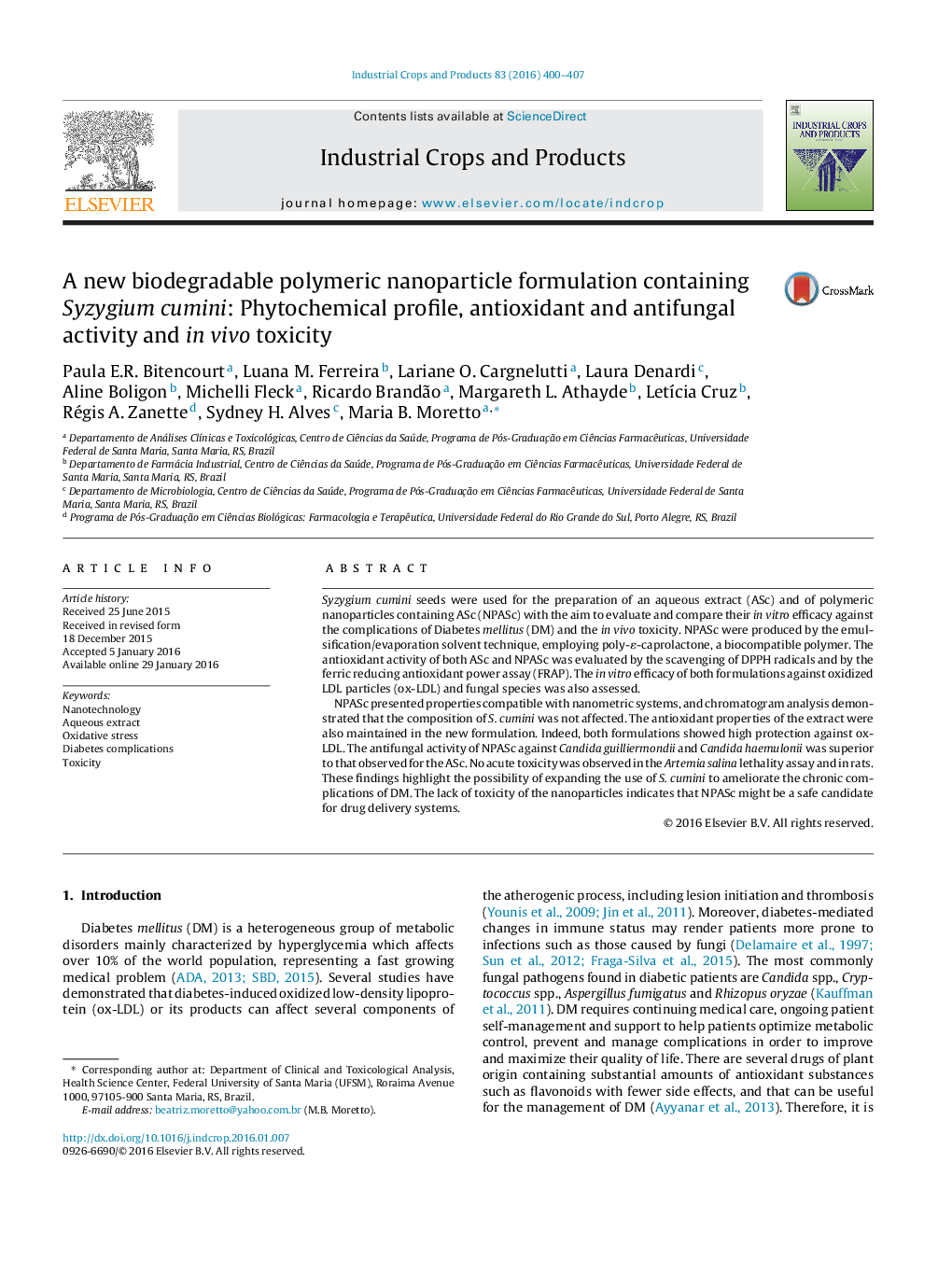| کد مقاله | کد نشریه | سال انتشار | مقاله انگلیسی | نسخه تمام متن |
|---|---|---|---|---|
| 4512312 | 1624827 | 2016 | 8 صفحه PDF | دانلود رایگان |

• Development of polymeric nanoparticles with ASc compatible with nanometric system.
• Phytochemical characterization quantify phenolic compounds in NPASc.
• DPPH and FRAP tests showed the equivalency between ASc and NPASc.
• NPASc showed capacity to inhibit ox-LDL particle and moderate effect against fungi.
• ASc and NPASc did not show toxicity in the Artemia salina test and in rats.
Syzygium cumini seeds were used for the preparation of an aqueous extract (ASc) and of polymeric nanoparticles containing ASc (NPASc) with the aim to evaluate and compare their in vitro efficacy against the complications of Diabetes mellitus (DM) and the in vivo toxicity. NPASc were produced by the emulsification/evaporation solvent technique, employing poly-ε-caprolactone, a biocompatible polymer. The antioxidant activity of both ASc and NPASc was evaluated by the scavenging of DPPH radicals and by the ferric reducing antioxidant power assay (FRAP). The in vitro efficacy of both formulations against oxidized LDL particles (ox-LDL) and fungal species was also assessed.NPASc presented properties compatible with nanometric systems, and chromatogram analysis demonstrated that the composition of S. cumini was not affected. The antioxidant properties of the extract were also maintained in the new formulation. Indeed, both formulations showed high protection against ox-LDL. The antifungal activity of NPASc against Candida guilliermondii and Candida haemulonii was superior to that observed for the ASc. No acute toxicity was observed in the Artemia salina lethality assay and in rats. These findings highlight the possibility of expanding the use of S. cumini to ameliorate the chronic complications of DM. The lack of toxicity of the nanoparticles indicates that NPASc might be a safe candidate for drug delivery systems.
Figure optionsDownload as PowerPoint slide
Journal: Industrial Crops and Products - Volume 83, May 2016, Pages 400–407